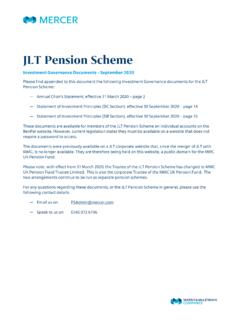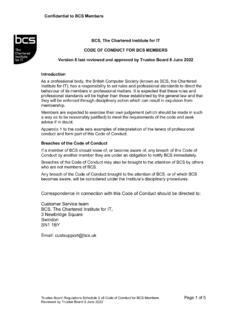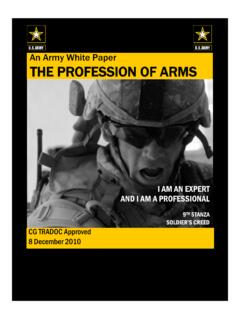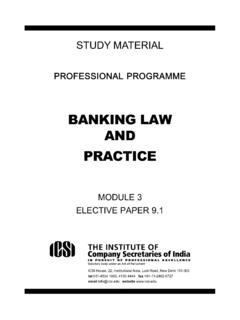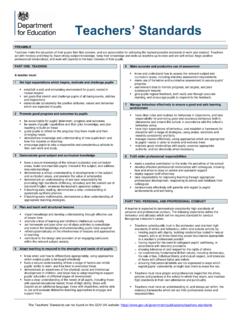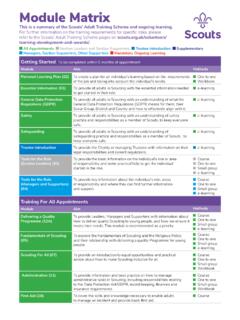Transcription of Impaired decision-making capacity and Indigenous ...
1 Popppppppppppppppp9o9a`1 vvbbbvgfttvt Impaired decision-making capacity and Indigenous Queenslanders Final Report Jayne Clapton, Lesley Chenoweth and Natalie Clements, Griffith University Vicki Pascoe and Kylie Radel, Central Queensland University Yvonne Cadet-James, Val Wallace, and Diane Cadet-James, James Cook University Funded by the Office of the Public Advocate Queensland 1. School of Human Services Impaired and Social decision-making Work capacity and Indigenous Queenslanders 2011. ACKNOWLEDGEMENTS. Acknowledgement to Indigenous People The research team would like to acknowledge the input into this research project from Indigenous Queenslanders. Funded by the Office of the Public Advocate Queensland 2. Impaired decision-making capacity and Indigenous Queenslanders Research Team School of Human Services and Social Work, Griffith University Jayne Clapton, Associate Professor Lesley Chenoweth, Professor of Social Work Head of Logan Campus Natalie Clements, Senior Research Assistant Nulloo Yumbah and School of Commerce & Marketing, Central Queensland University Vicki Pascoe, then A/Co-Director and Lecturer Nulloo Yumbah Kylie Radel, Lecturer/Course Coordinator School of Commerce & Marketing School of Indigenous Australian Studies, James Cook University Yvonne Cadet-James, Professor Chair of Indigenous Australian Studies Val Wallace, Deputy Head of School Diane Cadet-James, Research Assistant 3.
2 Impaired decision-making capacity and Indigenous Queenslanders Table of Contents Executive Summary 7. 1. Background 12. 2. Research Process 13. Methodology Ethical Considerations and Cultural Protocols 3. Part 1: Extended Literature Review 15. 4. Part 2: Data Collection 35. a) Focus Groups with Service Providers in North Queensland b) Focus Groups with Service Providers in Central Queensland c) Semi-structured Interviews with Key Stakeholders across Queensland 5. Results and Analysis of Data 41. RQ1: What are the meanings of Impaired capacity in Indigenous communities? RQ2: How has the issue of determining capacity for Indigenous people been addressed in Queensland, as well as within other jurisdictions in Australia? RQ3: How are decisions made for Indigenous adults with Impaired capacity according to Indigenous cultural expectations and practices? RQ4: Are the requirements of the current Guardianship legislative regime appropriate for Indigenous Queenslanders?
3 Is the legislation appropriate and advantageous for Indigenous Queenslanders with Impaired capacity ? RQ5: Are there other factors which need to be considered in 4. Impaired decision-making capacity and Indigenous Queenslanders relation to substitute decision-making practices for Indigenous Queenslanders with Impaired capacity ? 6. Discussion 74. 7. Conclusion 78. 8. Recommendations Complete List 79. 9. Recommendations Themed List 85. References 88. Appendix A: Table of other jurisdictions Appendix B: Report for the North Queensland Region, James Cook University Appendix C: Report for the Central Queensland Region, Central Queensland University Appendix D: Stakeholder interviews, Griffith University 5. Impaired decision-making capacity and Indigenous Queenslanders Tables Table: 1: Overview of Participants in Each Location in North 36. Queensland Table: 2: Overview of Participants in Each Location in Central 38.
4 Queensland Table 3: Comparisons between Indigenous and non- Indigenous 68. Australian worldviews Figures Figure 1: Communication issues and responses 54. Figure 2: Family and institutional relationships in the care process 58. Figure 3: Family and institutional relationships in the care process from 59. an Indigenous perspective Figure 4: Key agency criteria for services 60. Figure 5: Impacts from the historical legacy of colonisation for 7. Indigenous Australians Acronyms & Abbreviations AHD Advanced Health Directive AG Adult Guardian CEOs Chief Executive Officers CQU Central Queensland University CQ Central Queensland EPA Enduring Power of Attorney GU Griffith University JCU James Cook University OAG Office of Adult Guardian OPA Office of the Public Advocate OPT Office of the Public Trustee PT Public Trustee RQ Research Questions SHs Stakeholders NQ North Queensland 6.
5 Impaired decision-making capacity and Indigenous Queenslanders Executive Summary A research project, funded by the Office of the Public Advocate (OPA), was undertaken in 2009-2011, to address a range of research questions (RQs) relating to Indigenous Queenslanders and Impaired decision-making capacity ( Impaired capacity ). Partnerships were established between the OPA, Griffith University (GU), Central Queensland University ( CQU) and James Cook University (JCU) to extend previous scoping work 1 that identified that although that there is considerable research in relation to disability, cognitive impairment and mental illness amongst Indigenous Australians, there is little specific research into implications for Impaired capacity among this population. However, specific issues that were identified from the literature included: 1. How Indigenous Australians make decisions about the care, finances and property of family members with Impaired capacity .
6 2. What Indigenous peoples' knowledge and understanding about key agencies such as the Office of the Adult Guardian (OAG). 3. Whether the Guardianship and Administration system in Australia, whose role is to protect the rights and interests of adults who are unable to make decisions for themselves, is much utilised by Indigenous people, and 4. Whether the Western Guardianship and Administration system is incompatible with Indigenous peoples' because of cultural differences that result in a misfit between the legislation and Indigenous cultural concepts and the impact of obligations, such as kinship, collective ownership, reciprocity, and feelings of shame. Therefore it was clear that a range of responses are required to engage with Indigenous persons and communities, to make the system relevant and responsivee to Indigenous people. 1 See N. Clements, J. Clapton and L. Chenoweth (2010) Indigenous Australians and Impaired decision-making capacity .
7 Australian Journal of Social Issues, 45 (3), 383- 393. 7. Impaired decision-making capacity and Indigenous Queenslanders This research, then, particularly explored issues about Impaired capacity and decision- making for Indigenous people with Impaired capacity in Queensland, and their engagement with the Queensland Guardianship and Administration system, as perceived by service providers and key stakeholders (SHs). From a consultative and collaborative process between the research partners, a methodology was developed that included the following steps: Part 1: An expanded Literature Review Part 2: Data Collection a) Focus groups with Service Providers with Indigenous Queenslanders in North Queensland (NQ). b) Focus groups with Service Providers with Indigenous Queenslanders in Central Queensland (CQ), and c) Semi-structured interviews with key SHs across Queensland The following RQs were also developed: 1.
8 What are the meanings of Impaired capacity in Indigenous communities? 2. How has the issue of determining capacity for Indigenous people been addressed in Queensland, as well as within other jurisdictions in Australia? 3. How are decisions made for Indigenous adults with Impaired capacity according to Indigenous cultural expectations and practices? 4. Are the requirements of the current Guardianship legislative regime appropriate for Indigenous Queenslanders? Is the legislation appropriate and advantageous for Indigenous Queenslanders with Impaired capacity ? 5. Are there other factors which need to be considered in relation to substitute decision-making practices for Indigenous Queenslanders with Impaired capacity ? Ethics approval was granted through the relevant institutional Human Research Ethics Committees on completion and submission of a National Ethics Application Form that specifically addressed considerations in regard to research involving or about Indigenous Australians.
9 8. Impaired decision-making capacity and Indigenous Queenslanders Summary of Findings A pervasive theme of mistrust and suspicion of the Guardianship and Administration system in Queensland was strongly evident from all sources of data. Although the nature of the mistrust and suspicion did vary, nevertheless there are some common concerns. These included such aspects as trauma, fear, and remembrance of relinquishment. It is also apparent that these concerns are embedded in an intrinsic cultural incongruence between Indigenous and Western values, customs and worldviews about alternate decision-making . This incongruence appears to underpin significant confusion and lack of understanding about the roles and processes of authorities such as the Adult Guardian (AG) and Public Trustee (PT); and consequently calls into question the capacity of these authorities to provide effective alternative decision making for all Queenslanders.
10 Although some positive examples were cited, most experiences of dealing with Guardianship and Administration services for Indigenous people with Impaired capacity were reported as negative. Such negativity was based upon experiences with services that reflected: A lack of cultural awareness and understanding of Indigenous people's history, kinship responsibilities, cultural values and beliefs and ways of working. A lack of transparency within processes that subsequently presented significant barriers. A lack, or not enough, of Indigenous people being employed by the Office of the AG and the PT, and The use of flawed and culturally inappropriate assessment tools. 9. Impaired decision-making capacity and Indigenous Queenslanders Summary of Recommendations Recommendations were formed from each part of the research; and are presented throughout the Report, and as a complete list at the end of the Report.


